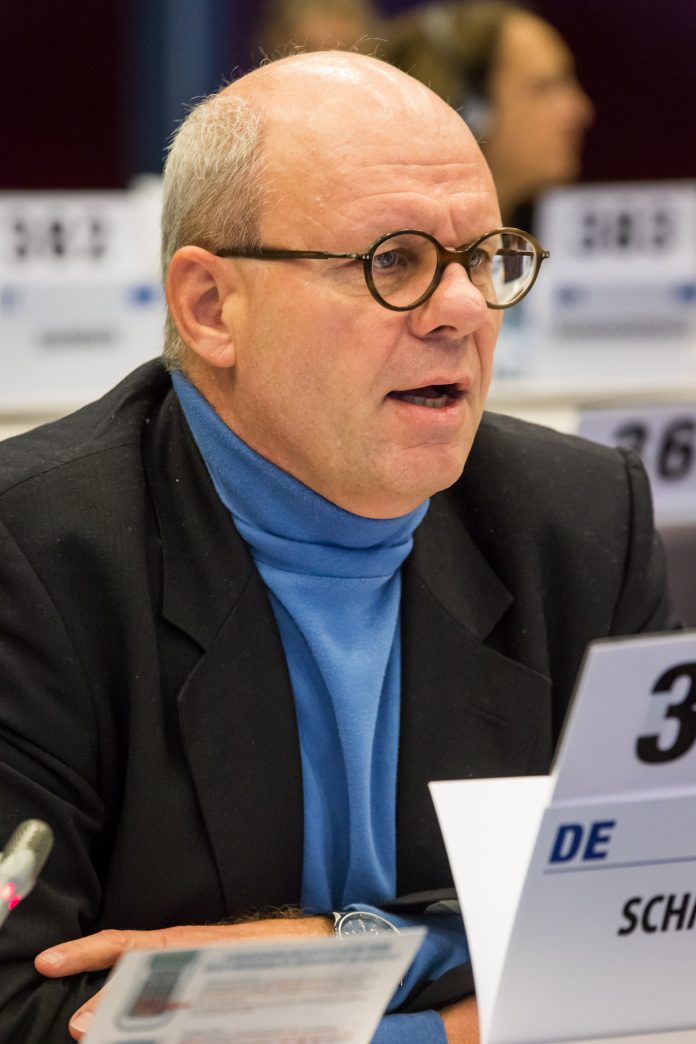National Officer of European and International Affairs Nahrung-Genuss-Gaststätten (the Food, Beverages and Catering Union in Germany)
Never before in the history of Europe have food safety and quality been as high as they are today. More food is being produced in Europe than ever before and it has never been easier to obtain: everything is available, anytime and anywhere.
So, does this mean we now have the perfect agri-food industry? Far from it! The industry’s reputation is now worse than ever: the list of negatives includes species extinction and cruelty to animals, as well as food scandals, profiteering by multinationals, low prices for small farmers and poor working conditions in parts of the food industry. Moreover, European agricultural policy over the past 50 years or more has focused solely on maximising food production, with no regard for what is being produced and how.
Food facts
- No other supply chain has as many unfair trading practices as the food sector.
- Food is being wasted more “cheaply” than ever before, as a direct result of this unhealthy competitive structure. These developments mean that the value of the food is lost.
- Current agricultural policy has not been able to guarantee an adequate income for farmers.
- There is no cohesion between the domains of sustainable agriculture, healthy eating, environmental protection, fair trade relations, etc. – and there absolutely needs to be, if we are to implement the UN’s sustainability goals.
- It has been shown that many people have poor diets due to social inequalities and food poverty, with enormous long-term costs for their health. Some 37% of all deaths in the EU are attributable to unhealthy diets.
- The EU’s rich cultural heritage is being threatened by the food industry’s massive marketing budgets.
These problems are the result of the chaotic structure of Europe’s food industry and of a lack of policy coordination.
Each market operator focuses on its own interests and the policies that ought to be bringing order to the chaos are a wholesale failure. The problem is that, unfortunately, far too many politicians in the Member States – and in Brussels too – are quite obsessed with the idea of neoliberalism, which blinds them to the overall picture, namely the need for a comprehensive pan-European food policy.
The European Economic and Social Committee recently adopted an opinion on this subject, setting out tangible first steps and recommendations.
So, what does a comprehensive food policy based on the sustainability goals need to achieve?
- It must be socially, environmentally and economically sustainable;
- It must be integrated across sectors and levels of governance;
- It must be inclusive of all sectors of society;
- It must ensure fair working conditions at all levels.
Metaphorically speaking, a comprehensive food policy could be seen as a temple in which the foundations are formed of governance and coordination.
The pillars of the temple then represent the following areas:
- Agriculture and thus CAP reform;
- Balanced territorial development/rural development (Cork 2.0);
- The transition to a circular economy;
- Sustainable consumption patterns;
- Fair distribution within the supply chain;
- Preserving Europe’s cultural diversity;
- Environmental protection;
- Education;
- Trade.
The roof of the temple represents food policy itself. In order to build this temple, the European Commission needs to take the initiative and take the following necessary steps:
- A cross-sectoral, inter-institutional task force should be set up, with the aim of developing an action plan on food sustainability.
- It is important to make use of the hearings organised by the European Economic and Social Committee when preparing the opinion.
- An “EU sustainable food scoreboard” should be developed to encourage and monitor progress towards the targets set.
- A new European Food Policy Council should be set up.
- The transition to sustainable European food systems requires the development of EU sustainable dietary guidelines, including guidance on smart labelling for sustainable food.
- The European Commission, the European Parliament and the Council are therefore requested to explore whether it would be useful to create a dedicated Directorate- General for Food, which could take the initiative on regulation, legislation and, potentially, enforcement.
If politicians want to take long-term, sustainable action, they need to develop a strategy that takes account of these proposals, which would be implemented in agreement with all the participants in the supply chain. This is not primarily about adopting new laws, but rather about coordinating and integrating the wide variety of initiatives that already exist.











